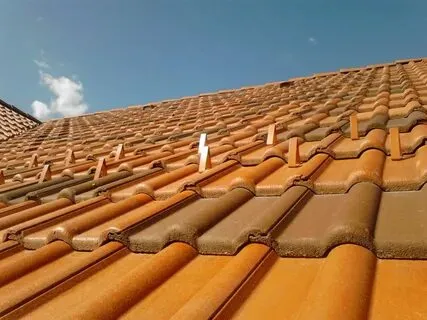When it comes to safeguarding our homes and businesses from the elements, few professionals are as essential as roofers. Whether repairing a leak or installing a brand-new roof, these expert craftsmen play a crucial role in maintaining the integrity and safety of our structures. However, like any specialized service, the cost of hiring a roofer can vary widely depending on a variety of factors. In this article, we will delve into the intricacies of roofer cost, providing insight into the pricing structures and considerations that shape the price of protection for your most valuable asset.
Factors Influencing Roofer Cost
can vary depending on the type of roofing materials, the complexity of the roof design, and the location of the property. When considering the cost of hiring a roofer, homeowners should take into account the following key factors:
- Roofing materials: The type of roofing materials used can have a significant impact on the overall cost of a roofing project. Materials such as asphalt shingles are typically more affordable compared to options like metal or slate.
- Roof design: The complexity of the roof design, including the pitch and angles, can also affect the cost of hiring a roofer. A more intricate roof design may require additional labor and materials, leading to higher costs.
- Location: The location of the property can influence roofer cost due to factors such as local labor rates, building codes, and weather conditions. For example, roofs in areas prone to severe weather may require extra reinforcement, increasing the overall cost.
In addition to these factors, other variables such as the size of the roof, accessibility, and the roofer’s level of experience can also impact pricing. It is essential for homeowners to thoroughly research and obtain multiple quotes from reputable roofing professionals to ensure they are getting a fair price for their roofing project. By understanding the various , homeowners can make informed decisions when it comes to protecting their home.
| Factors | Impact on Cost |
|---|---|
| Roofing materials | Higher quality materials lead to increased costs |
| Roof design | Complex designs require more labor and materials |
| Location | Local factors like labor rates and building codes affect pricing |

Comparing Different Types of Roofing Materials
When it comes to protecting your home, choosing the right roofing material is crucial. Different types of roofing materials come with varying costs and benefits, so it’s important to weigh your options carefully. Asphalt shingles are one of the most affordable roofing materials, making them a popular choice for homeowners on a budget. They are easy to install, come in a variety of colors, and provide decent protection against the elements. Metal roofing, on the other hand, is more expensive upfront but offers excellent durability and longevity. It is lightweight, fire-resistant, and can last up to 50 years with proper maintenance.
For a more luxurious look, consider investing in tile or slate roofing. While these materials are the most expensive options, they are also the most visually appealing and offer unmatched durability. Tile roofing can last up to 100 years, while slate can last even longer. Both materials are resistant to fire, rot, and pests, making them a solid investment in the long run. Ultimately, the cost of roofing materials will depend on your budget, aesthetic preferences, and long-term goals for your home.

Tips for Negotiating Roofer Prices
When negotiating with roofers, it’s important to keep in mind that the cost of their services can vary depending on several factors. To ensure that you are getting the best deal possible, consider the following tips:
- Get Multiple Quotes: Don’t settle for the first roofer you contact. Reach out to several different companies to compare prices and services offered.
- Ask About Materials: Different roofing materials can have a significant impact on the overall cost. Make sure to inquire about the types of materials being used and if there are any cheaper alternatives.
- Consider Timing: Roofing companies may be more willing to negotiate their prices during their off-peak seasons. Take advantage of this and schedule your roofing project accordingly.
Additionally, it’s important to establish a clear budget and communicate this with the roofer from the beginning. Be open to negotiating and don’t be afraid to ask for discounts or payment plans if needed. Remember, the goal is to get the best quality work for a fair price. By being proactive and informed, you can successfully navigate the negotiation process and secure a deal that works for both parties.

Importance of Hiring a Licensed Roofer
When it comes to protecting your home, hiring a licensed roofer is essential. Not only does a licensed roofer have the proper training and experience to tackle any roofing project, but they also provide an extra layer of protection for you as a homeowner. By hiring a licensed roofer, you can rest assured that the job will be done right the first time, saving you time and money in the long run.
Another benefit of hiring a licensed roofer is that they are required to carry insurance. This means that in the event of any accidents or damages during the roofing process, you won’t be held liable. It’s important to remember that the cost of hiring a licensed roofer is an investment in the safety and security of your home. Don’t cut corners when it comes to the protection of your most valuable asset!
In Retrospect
In conclusion, understanding the cost of hiring a roofer is essential for both homeowners and contractors alike. By considering factors such as materials, labor, and overhead, you can make more informed decisions when it comes to protecting your home. Remember, quality should always be prioritized over cost when it comes to safeguarding one of your most valuable investments. So, next time you’re in need of roofing services, don’t just focus on the price tag, but rather the value of protection that comes with it.














